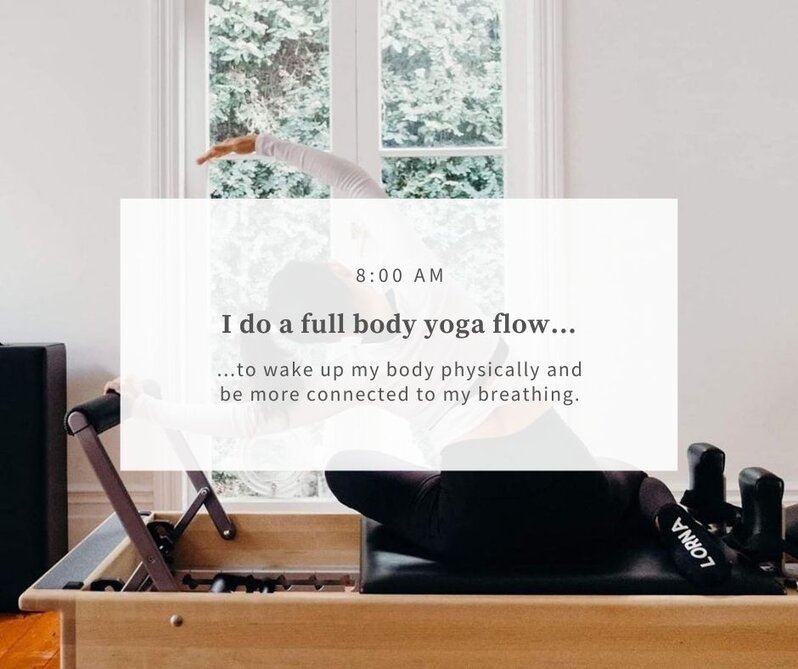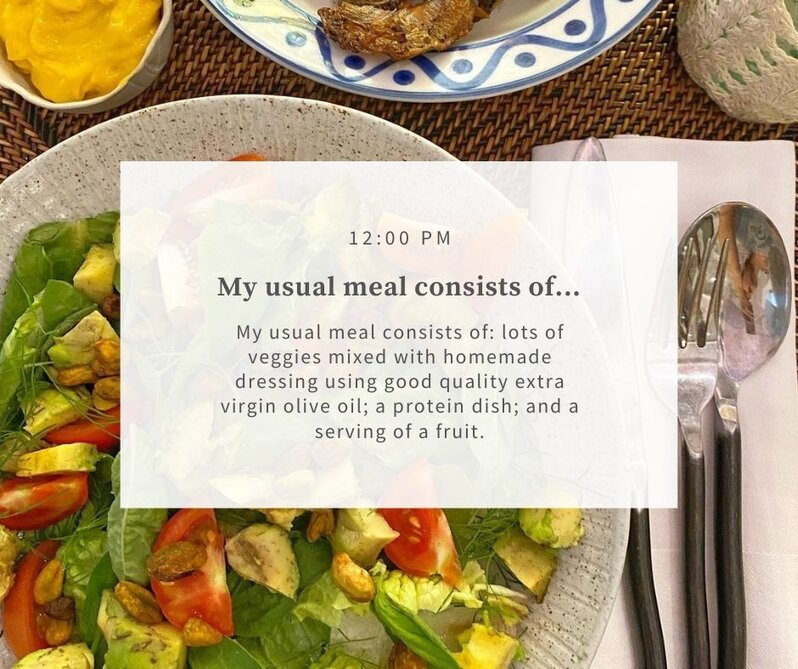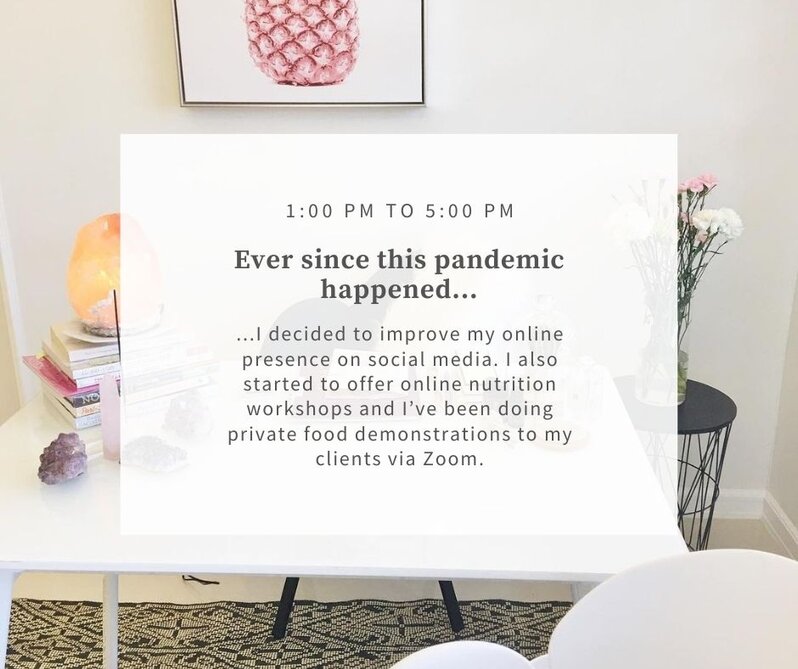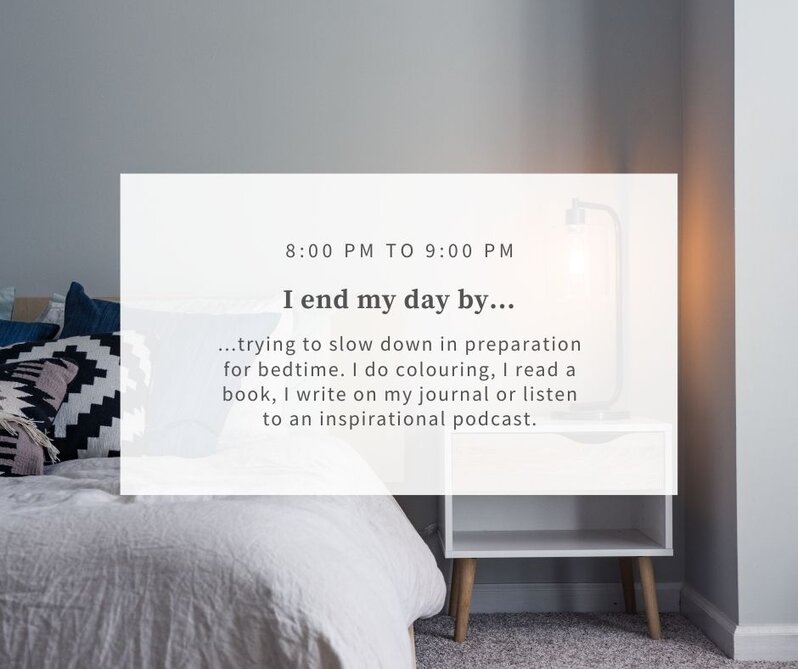Our day-in-the-life series gives a peek into the lives of wellness professionals. See how they practice what they preach and discover their daily routines and self-care habits rooted in reality.
When we think of diets, our minds immediately go to losing weight, eating salads, and following a very, very restrictive food plan. For the calorie-conscious, it may be a normal thing, but to those who like to eat a little bit more sinfully on the daily (guilty as charged!), it’s definitely uncharted territory.
That’s why encountering someone with the title ‘dietitian’ or 'nutritionist' raises a lot of curious questions and maybe a little bit of fear. When we asked #TeamClozette about their opinions, some of their thoughts included: Will they police what you eat? What are their thoughts on cheat days? Will they plan out every single meal for you?
To address these questions, licensed nutritionist and dietician Samantha Morales let us explore a day in her life. She also debunked some misconceptions about her profession.
Morning zen
For Samantha, making sure she’s starting the day on a positive note is key in creating a healthy atmosphere not just for herself but also for her clients. She wakes up at 7AM and kicks things off with a spiritually and mentally soothing routine. She then proceeds to balance it out with physiologically healthy practices.

As the saying goes, starting your day right matters.
“By 8AM, I do a full-body yoga routine to wake up my body physically and to be more connected with my breathing,” she shared.
She usually fasts in the morning and takes her first full meal by noon. This allows her to spend extra time in either preparing her lunch and dinner or doing a batch meal prep at least two times a week “to save time and effort.” This level of efficiency allows her to get into a clearer headspace to address work consultations in the best condition possible starting from 9AM.
After her early morning activities, she takes “a glass of cold-pressed celery juice one to two hours” before her first meal for the day.
A look into her midday mealtime
Samantha noted that even though having greens in her diet seemed compulsory given her profession, it doesn’t mean that veggies are all she eats.
“My usual meal consists of lots of veggies (I love salads!) mixed with a homemade dressing using good quality extra virgin olive oil; a protein dish (either baked organic chicken with herbs and spices or grass-fed beef steak), and a serving of a fruit (like half a cup of blueberries or a slice of a pear),” she said.

Misconception debunked: It's not all greens for dieticians and nutritionists!
However, she also mentioned that sometimes “a serving of dark chocolate” also finds its way into her lunchtime menu. This disproved that dieticians-slash-nutritionists have an aversion over everything dessert.
Hectic afternoons
After a solid mealtime, she starts her afternoon going back to more client consultations. This goes on from 1PM until at least 5PM.
“I’m very hands-on during programs so doing research and development for corporate clients mean travelling to different places (to inspire me to develop new flavours or recipes). This also means planning nutrition and wellness workshop events every quarter,” she cited, referring to how she used to operate pre-pandemic.
Even at the time, she would already hold virtual consultations for clients living outside of Metro Manila or those who are living abroad. This made adjusting during the stay-at-home period a little smoother.
She elaborated, saying: “Since this pandemic happened, I decided to improve my online presence on social media. I started to offer online nutrition workshops and I’ve been doing private food demonstrations to my clients via Zoom. It’s somewhat the same to what I’ve been doing pre-pandemic. The only difference is the method of how the services are delivered. I’m thankful that my clients are open to virtual learning — anything that will support their health goals.”

Going for a healthier lifestyle always finds a way.
When asked about the most common thing she encounters from first-time clients or even with people she just meets on the daily, she said that it was the assumption that her career is just about making diet plans.
“[My profession] is actually about [improving] one’s lifestyle, not just the diet,” she explained. “It takes time (not an overnight event) since it’s a process that involves not only the food intake but also stress management (how one deals with his or her emotions), and physical activity.”
She also said that people also immediately assume she’s good at cooking, but she clarified that it is a skill she continues to master in order to not just develop a sustainable dining habit for herself but also to impart what she knows to her clients.
Mindful nights
After a long day at work, Samantha retires for the day by gradually slowing down through a series of recalibrating activities. Dinner is usually comprised of the same elements she mentioned earlier, going by the philosophy that what you put in your body day-in and day-out affects both your internal and external wellbeing.
However, Samantha firmly dismissed the notion that dietitians and nutritionists don’t have cheat days. She said that, occasionally, a slice of a chocolate cake or her favourite tapas make it into her 'busy day' wrap-up as well.
“For me, it’s all about creating a healthy relationship with food. This could mean becoming more mindful of your food choices whether they will support your health goals or not, slowing down and enjoying the foods as they are, and eating until you feel gently satisfied,” Samantha reminded.
From dinnertime, she does activities that are similar to what's included in her morning routine. Only this time, they're more passive in nature, aiming to relax both the mind and the body. The routine usually involves colouring, sometimes reaching for a book, writing on her journal or listening to an inspiring podcast.

Taking time to 'recalibrate' for the night is also of utmost importance. (Photo from: Christopher Jolly via Unsplash)
She highlighted the importance of having the right balance between your diet and your lifestyle, saying: “When we think of stressful events or have negative feelings or emotions (like anxiety, resentment, jealousy, etc.), we create distress in our gut which may trigger digestive issues (i.e. reflux, indigestion, constipation, etc.). If we have healthy gut flora, it sends out chemicals to our brain that affect us emotionally and cognitively, making us feel less stressed out mentally and emotionally.”
Once she’s done settling down for the day, she ensures that lights are out by 10PM to allow for adequate sleep. Practising what she preaches to her clients is of utmost importance, she stressed, and that goes beyond just prescribing a meal plan for days and weeks.
“During this pandemic, may we strengthen our immune system by eating real, whole, nutrient-dense foods, staying away from things or people that make us feel bad, engaging in a regular physical activity, and constantly develop feelings of love and gratitude.”
Next, explore a day in the life of a psychologist here.
Comments, questions or feedback? Email us at [email protected].








